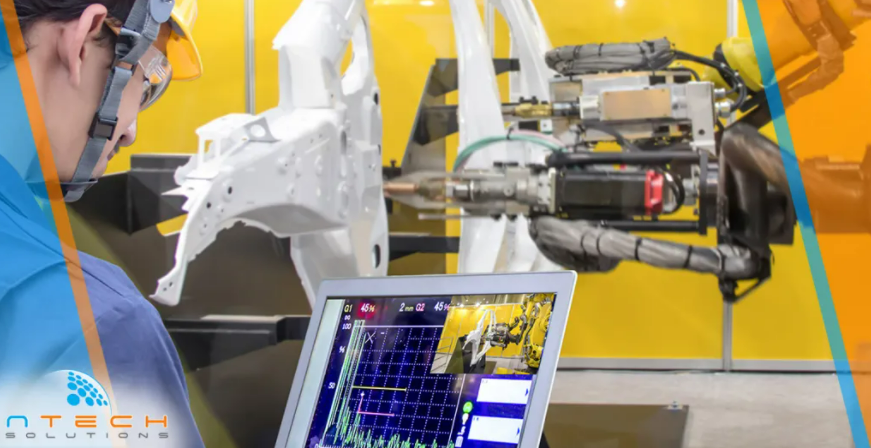Every Modern Manufacturing Worker Needs These 5 Skills
As machines and automated solutions take over more jobs in the manufacturing sector, employees and eager candidates need to consider re-skilling...
2 min read
![]() nTech Workforce
:
Nov 19, 2018 6:42:00 AM
nTech Workforce
:
Nov 19, 2018 6:42:00 AM

Technological advancements are soon expected to replace many manufacturing workers. While manual labor is still needed in modern manufacturing facilities, the nature and volume of that labor are expected to change. There’s presently an immediate need for skilled workers who can solve complex problems, develop creative ideas, and utilize innovative technical solutions.
This means manufacturing organizations need to look beyond conventional skills to adapt their workforce to changing requirements. Failure to transform your team is likely to lead to decreased productivity and the inability to meet customer demands. The good news is that by retraining your workforce and equipping them with a new set of skills, you’ll help your company, as well as your employees, navigate this changing landscape.
Here are three ways you can address workforce management challenges facing the manufacturing industry:
Although there are many jobs in manufacturing, the disconnect between technology and education has led to a growing gap in skills. What’s more, workplace training has been unable to keep pace with changing technology. You may need to upgrade skillsets, especially concerning problem-solving, communication, and organizational skills.
The rapid evolution of technology, combined with increasingly automated tasks, has led to the demand for an entirely different set of skills compared to 10 years ago. To counter this, you may want to implement in-house training and rethink your hiring strategy. For example, it’s a good idea to hire technically skilled people, whereas standard manufacturing skills can always be learned on the job.
READ MORE: Techniques for Keeping Your Employees Engaged in Ongoing Learning
Exposing your workers to new technology and offering apprenticeship training programs can help them adapt to – and embrace – changing demands. Providing training in a virtual environment or with the help of artificial intelligence (AI) allows them to practice tasks at their own pace and close the skill gap.
While technological advancements may eliminate many traditional manufacturing job roles, they will also lead to the creation of many new ones. The key to adapting your workforce lies in equipping middle-level workers with new skills to navigate the transition.
Demand-driven training and in-house mentoring can help provide the missing link between workers, new skills, and changing requirements. With the right planning and strategies, you can re-skill and retrain your workforce, and help your employees grow into new, rewarding roles.
As leading recruitment specialists, nTech Workforce provides skilled technical consultants to fulfill your requirements. Contact our team today for more information about our staffing solutions.

As machines and automated solutions take over more jobs in the manufacturing sector, employees and eager candidates need to consider re-skilling...

If you enjoy working with IT and combining that with communication, creativity, and problem-solving skills, a database administration job role may be...

Making the transition from development to business analysis is a commonly considered career move for many IT professionals. While strong technical...